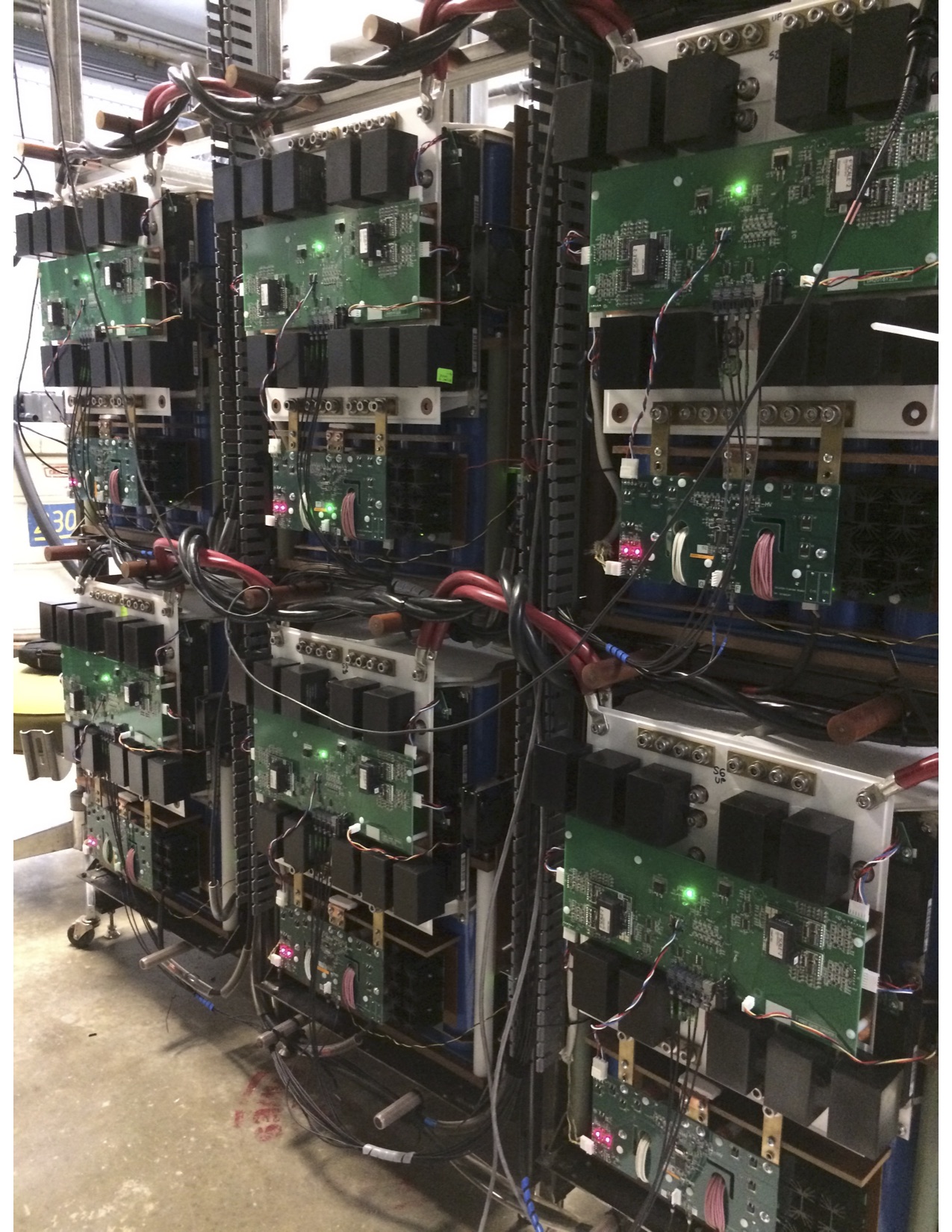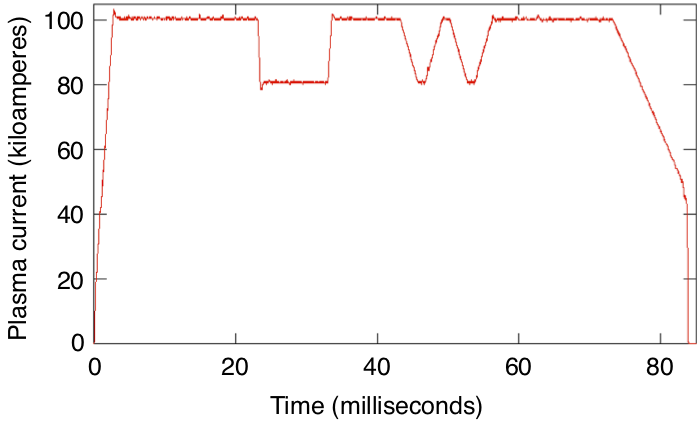
A UW-Madison Physics Department research team led by Dr. Brett Chapman was awarded a two-year Major Research Instrumentation grant from the National Science Foundation (NSF) for construction of programmable power supply (PPS) modules for experimental use on the Big Red Ball (BRB) and the Madison Symmetric Torus (MST) at WiPPL. The PPS modules are digitally programmable and feedback controlled, based on a prototype, pictured above, already in use on MST to drive toroidal plasma current, which generates a poloidal magnetic field confining the high-temperature plasma. The modules, six of which are shown in the picture, can be used individually, or they can be used in groups as large as desired, providing a wide range of maximum current. The modules provide for substantially more flexible and sophisticated plasma experiments at WiPPL. Some experiments will be accomplished much more readily and quickly with the modules, but the modules will also enable other experiments that would otherwise range from difficult to impossible. This capability is illustrated with the MST plasma current signal plotted below, with 100,000 amperes of MST plasma current being modulated with an embedded “UW” waveform. On BRB, the modules will enable an easily scannable toroidal guide field for ongoing magnetic reconnection studies, as well as future experiments on the formation of spherical tokamaks for adiabatic compression and ion heating studies, for example. On MST, they will help enhance the capabilities of the power supplies now in use to provide both poloidal and toroidal magnetic fields, enabling increased operational performance for physics studies of reversed-field pinch and tokamak plasmas. This new power supply capability funded by the NSF will substantially enhance and broaden the plasma science research that can be carried out at WiPPL.
